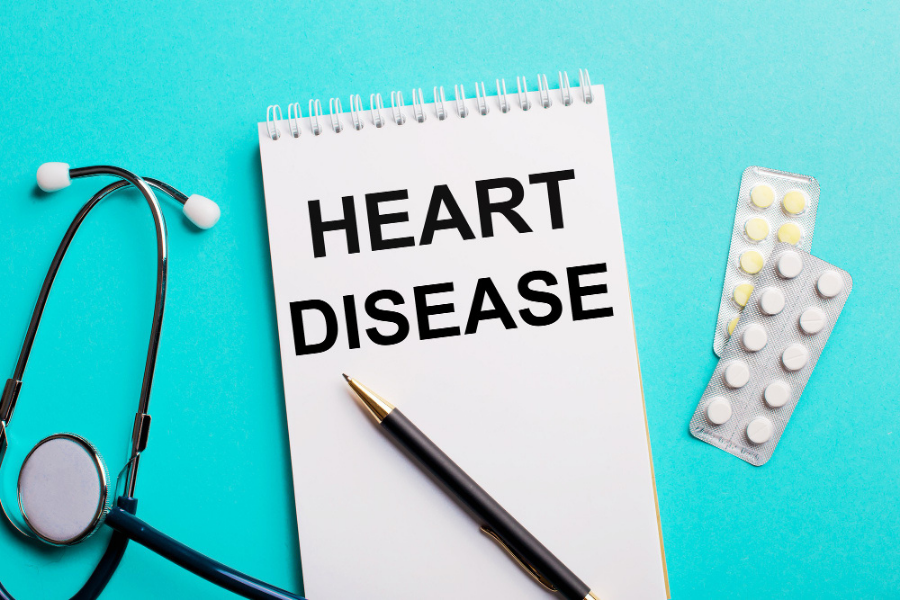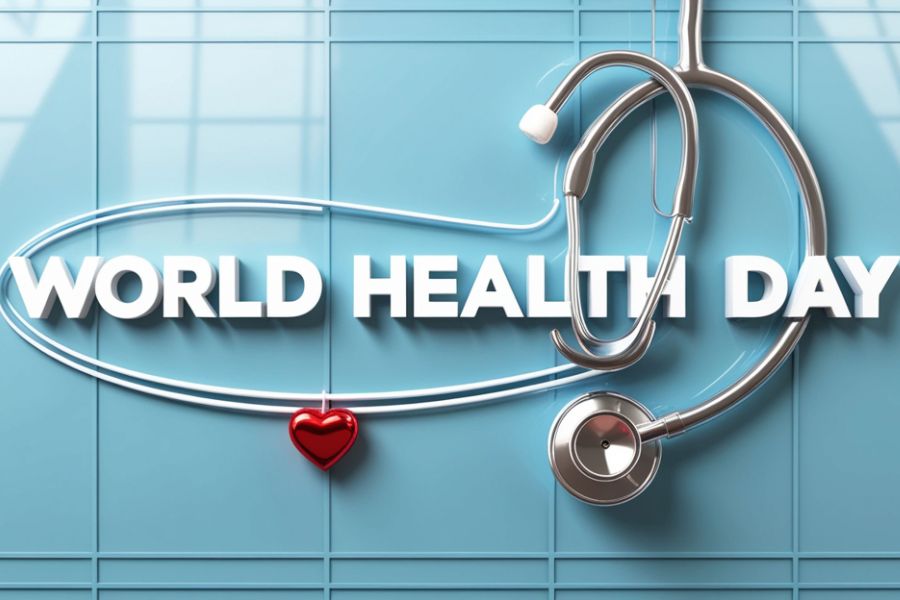- 07th Oct 2024
- srisriholistichospitals.com
- Comment: 0
- blog

Each year, on September 29th, World Heart Day is observed globally to raise awareness about cardiovascular health and promote heart disease prevention. While heart health is often seen as a predominantly male issue, cardiovascular diseases (CVD) are actually the leading cause of death among women worldwide, surpassing all other conditions, including cancer. Despite this, women are often overlooked in heart health discussions, even though they face distinct risks. This blog highlights the importance of increasing awareness of women’s heart health.

Why Women’s Heart Health Deserves Attention?
Traditionally, heart disease has been seen as predominantly affecting men, but this misconception can be dangerous for women. Women often present different symptoms and risk factors than men, and the medical field is still working to fully grasp these differences. For instance, while men may experience the typical symptom of chest pain during a heart attack, women are more likely to have more subtle indicators like fatigue, shortness of breath, or discomfort in the neck, jaw, or back.
Studies indicate that women often face delays in receiving treatment for heart attacks because their symptoms are frequently misinterpreted or attributed to other conditions, such as anxiety or indigestion. This can result in women not receiving critical care when it’s needed most.
Moreover, many women are unaware of their own risk. According to the American Heart Association, only 56% of women recognize heart disease as their leading cause of death, and many do not take steps to safeguard their heart health. These concerning statistics underscore the importance of raising awareness and promoting education about women’s heart health, particularly on occasions like World Heart Day.

Unique Risk Factors for Women
Several risk factors for heart disease are particularly important for women:
1. Hormonal Changes
The decline of oestrogen during menopause, which normally helps protect the heart, heightens the risk of heart disease. After menopause, women often experience an increase in LDL (bad cholesterol) and blood pressure, both of which are risk factors for cardiovascular disease (CVD).
2. Pregnancy-Related Complications
Conditions such as preeclampsia, gestational diabetes, and high blood pressure during pregnancy can significantly increase a woman’s chances of developing heart disease later in life. These complications can serve as early warning signs of future cardiovascular issues, highlighting the importance of regular post-pregnancy check-ups.

3. Autoimmune Diseases
Women are more prone to autoimmune conditions like lupus and rheumatoid arthritis, which can lead to heart inflammation and disease. Over time, these chronic diseases can damage the arteries and heart tissue.
4. Depression and Anxiety
Mental health issues like depression and anxiety, which are more common in women, have been linked to a higher risk of heart disease. Chronic stress from these conditions can increase blood pressure and inflammation, impacting heart health.

5. Lifestyle Factors
Women often balance multiple roles, such as careers and caregiving, leading to elevated stress levels and little time for self-care. Unhealthy habits like poor diet, lack of exercise, smoking, and excessive alcohol use can contribute to heart disease, with many women feeling too overwhelmed to focus on their own health.

Signs and Symptoms of Heart Disease in Women
Identifying the early signs of heart disease can be crucial for saving lives. Women often experience symptoms differently than men, which can complicate the diagnosis. Key symptoms to be aware of include:
1. Fatigue
Severe or unexplained fatigue, especially with little exertion, may be an early warning sign of heart issues.
2. Shortness of Breath
Difficulty breathing after minimal activity can indicate potential heart problems.
3. Discomfort in the Chest, Neck, or Jaw
While chest pain is commonly linked to heart attacks, women may experience discomfort or pressure in the neck, jaw, or back instead.
4. Nausea or Dizziness
Feeling lightheaded, nauseous, or dizzy without an obvious cause could signal heart issues.
5. Swelling in the Legs or Feet
Fluid buildup in the lower limbs may be a sign of heart failure.
These signs can be subtle, so it’s essential for women to listen to their bodies and consult a doctor if something seems unusual.
Preventive Measures for Women’s Heart Health
The best way to protect your heart is through prevention. Women can take several proactive measures to lower their risk of cardiovascular disease:
1. Follow a Heart-Healthy Diet
Prioritise foods rich in fruits, vegetables, whole grains, lean proteins, and healthy fats. The Mediterranean diet, which highlights heart-friendly options like olive oil, nuts, and fish, has been proven to reduce heart disease risk. It’s also important to limit salt, sugar, and processed foods.

2. Stay Active
Regular physical activity is key to maintaining heart health. Women should aim for at least 150 minutes of moderate aerobic exercise each week, along with strength training. Activities such as walking, swimming, cycling, and yoga are excellent for promoting heart health.

3. Avoid Smoking and Limit Alcohol
Smoking is a major contributor to heart disease, and quitting significantly reduces the risk. Excessive alcohol intake can also raise blood pressure and contribute to heart issues, so moderation is important.
4. Manage Stress
Chronic stress negatively impacts the heart by raising blood pressure and promoting inflammation. Stress-relieving techniques such as mindfulness, meditation, deep breathing, and engaging in hobbies can help protect heart health.
5. Get Regular Check-Ups
Routine healthcare visits are essential for monitoring heart health. Women should regularly check their blood pressure, cholesterol, and glucose levels, especially if they have risk factors such as obesity, a family history of heart disease, or pregnancy-related complications.

6. Maintain a Healthy Weight
Obesity significantly raises the risk of heart disease in women. Maintaining a healthy weight through proper diet and exercise can help lower this risk and improve overall well-being.

The Role of Awareness Campaigns Like World Heart Day
World Heart Day is crucial in raising awareness about heart disease, especially among women who may be unaware of their risk. By emphasising early detection and lifestyle modifications, this initiative helps save lives and empowers women to take charge of their heart health.
It also sheds light on healthcare inequalities, as women, particularly in low- and middle-income countries, often encounter obstacles in accessing adequate heart care. These disparities underline the importance of policies and programs that promote equal access to preventive care and treatment for all women.

Empowering Women to Prioritise Their Heart Health
Heart disease continues to be the top cause of death among women, but it doesn’t have to stay that way. With increased awareness, education, and positive lifestyle changes, women can take control of their heart health and lower their risk of cardiovascular disease. This World Heart Day, let’s emphasise the importance of empowering women to prioritise their heart health. By recognizing the specific risks they encounter and taking proactive steps, women can safeguard their hearts — one beat at a time.
Incorporate heart health into your daily self-care routine, not just on World Heart Day, but every single day.

Frequently Asked Questions
Heart disease is a leading cause of death among women, often with symptoms that differ from men. Raising awareness helps in early detection, prevention, and effective management of cardiovascular risks specific to women.
Women may experience symptoms such as shortness of breath, chest pain, fatigue, nausea, or back and jaw pain. These symptoms can be subtle, making awareness crucial for timely diagnosis.
Women can reduce their risk by adopting a heart-healthy lifestyle, including regular exercise, a balanced diet, stress management, quitting smoking, and monitoring blood pressure and cholesterol levels.
Yes, risk factors such as hormonal changes during menopause, pregnancy complications, high blood pressure, diabetes, and a family history of heart disease can increase the likelihood of heart issues in women.
Mental health conditions like anxiety and depression can alleviate stress levels, which in turn increases heart disease risk. Managing mental well-being is essential for maintaining a healthy heart.



